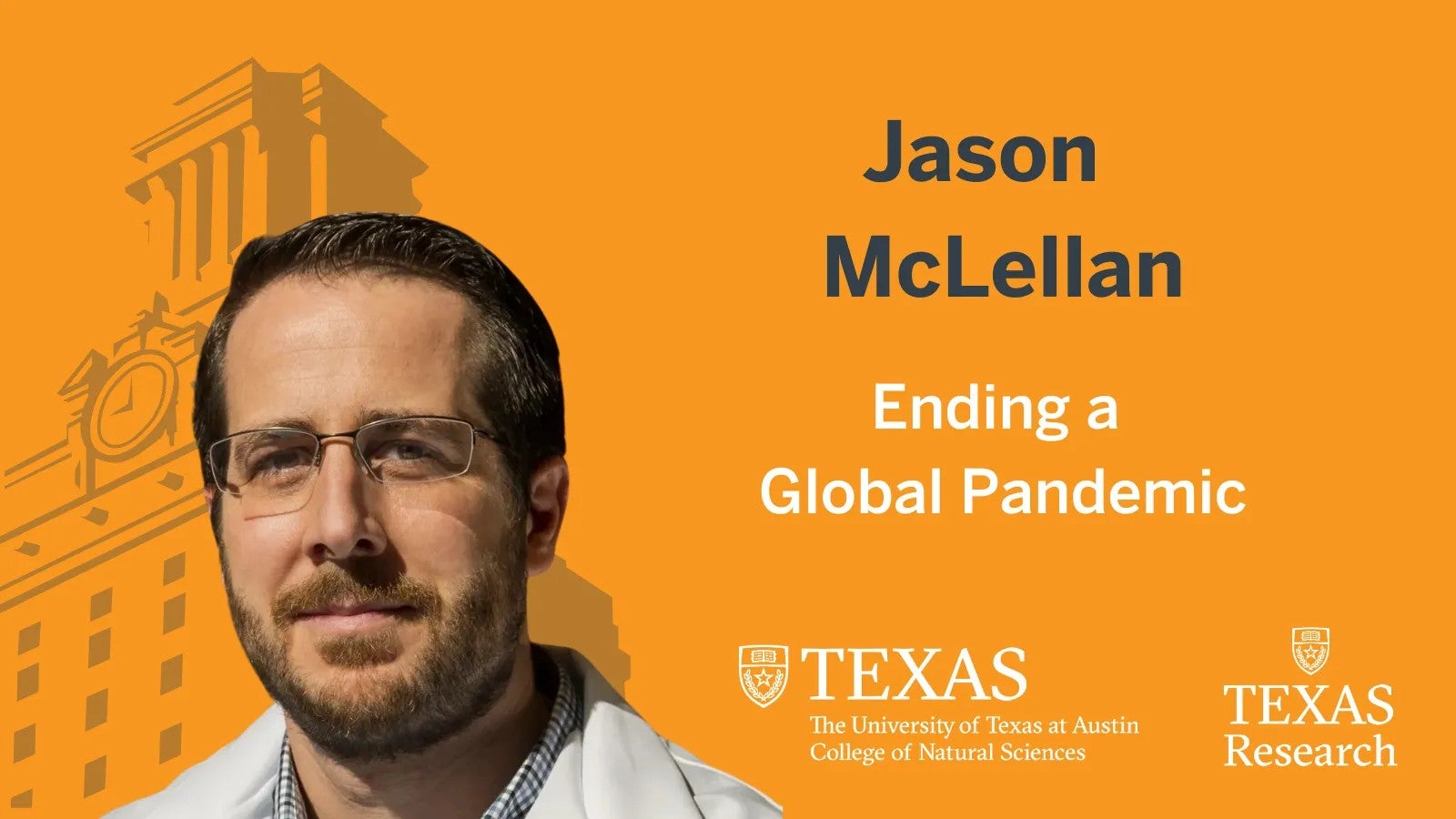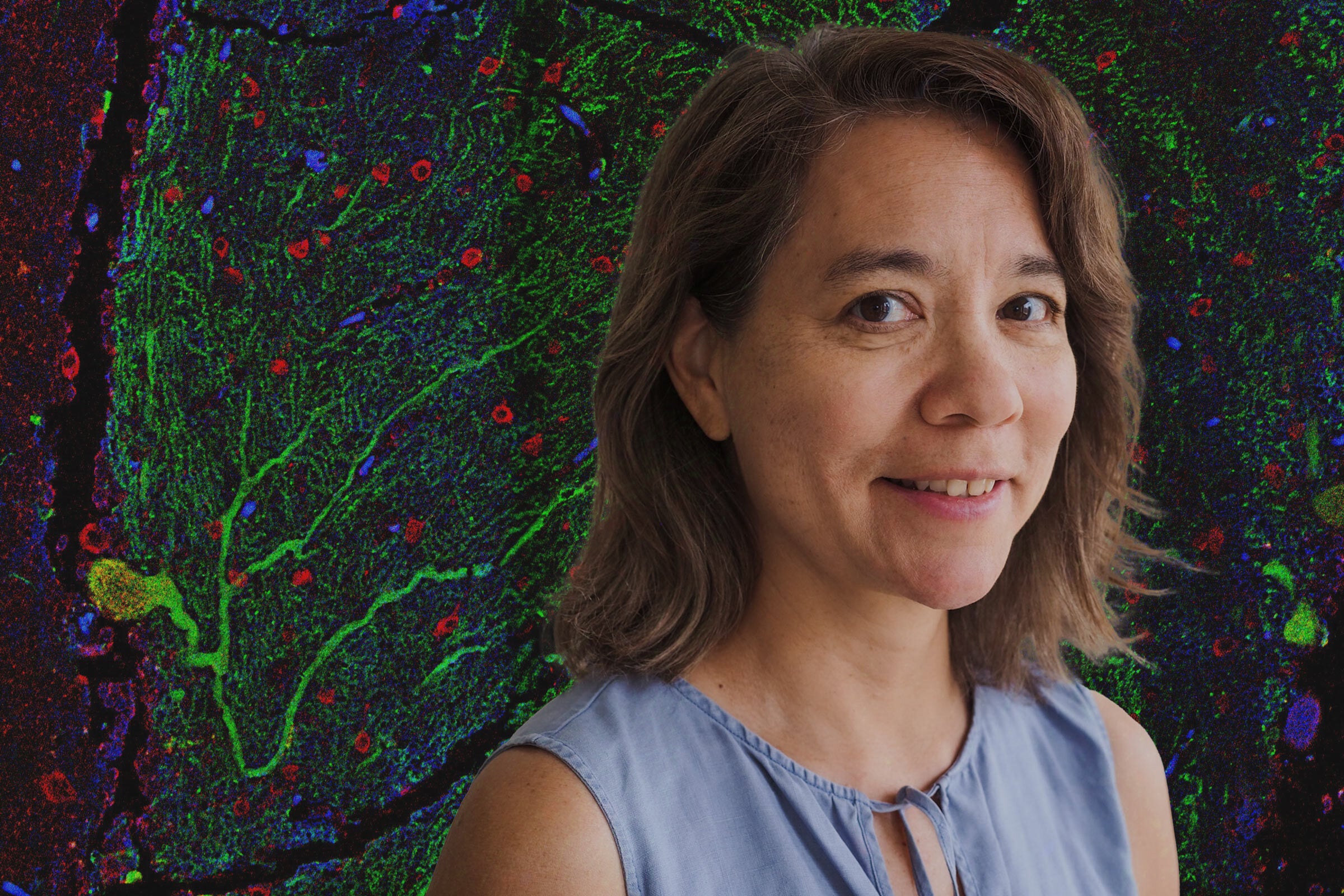
Jason McLellan
Research that's Changing the World
Jason McLellan is a structural biologist who played a key role in the development of COVID-19 vaccines. He and his research team figured out how to produce a stable version of the coronavirus spike protein used to develop the leading COVID-19 vaccines. During the first year of vaccinations, nearly 20 million deaths were prevented because of COVID-19 vaccines, many of them featuring the McLellan Lab’s technology. In addition, the first-ever vaccine approved by the Food and Drug Administration to treat respiratory syncytial virus (RSV) is also built on research from a team that includes McLellan.
What Starts Here
Jason McLellan, the Robert A. Welch Chair in Chemistry and a professor in the Department of Molecular Biosciences in the College of Natural Sciences, studies viral and bacterial proteins. His work to understand how these proteins are structured and how they function has factored into the development of vaccines and potential treatments for deadly pathogens that have impacted the lives of billions of people. McLellan, who moved his lab in 2018 to UT Austin, is the winner of multiple scientific awards, including the National Academy of Sciences Award in Molecular Biology, the Park MahnHoon Award, the Edith and Peter O'Donnell Award in Medicine, the Golden Goose Award, the William Prusoff Memorial Award and the Viruses Young Investigator in Virology Prize.
Beyond the 40 Acres
Barney Graham, former deputy director of the Vaccine Research Center at the National Institutes of Health and now a professor and Founding Director, David Satcher Global Health Equity Institute at Morehouse School of Medicine in Atlanta: "Working with Jason has been one of the most fulfilling scientific relationships of my career. Gradually chipping away at the structural features of RSV and SARS-CoV-2 was instrumental in achieving success with the vaccines. Jason has a brilliant mind, and his dedicated application of science to solving critical public health problems has helped us reach the other side of the COVID-19 pandemic."



